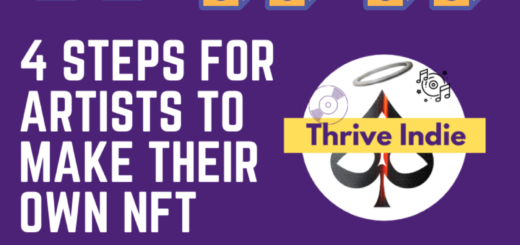How Will the Music Sector Evolve the Next Decades with the Futuristic Music Festivals?

Nothing can compare to the pulsating thrill of a music festival. Listening to your favorite musicians with friends and like-minded music-loving strangers is like being transported into an alternate universe.
In 2019, when the Pandemic hit the whole world, everything came within the ambit of the internet. Live music concerts were canceled or postponed to abide by Government’s mandate for social distancing and health security.
But music, with its healing powers, used therapeutically by medical professionals and lovers alike, couldn’t be kept barred and technology came to our aid.
Musicians had to find an alternative platform to connect with their fans. And that unleashed a new era in the music industry. What was seen as a distant dream has now become a reality.
There is a high chance that futuristic music festivals will evolve in the next 10 years to cope with the hurdle they faced in the past.
Innovation in Futuristic Music Festivals

Integration of technology into the music festival experience is becoming increasingly common. Extending well beyond the festival grounds and into people’s homes worldwide.
Incorporating artificial intelligence will streamline plenty of expensive, time-consuming, and complex operations in the music and advertising industries. Not just removing intermediates, but decentralizing the music business. As a result, we will witness many virtual concerts like Travis Scott, Ariana Grande, and Marshmello did to entertain their countless fans.
Music Festivals in Metaverse

Artists can perform anywhere in the Metaverse, and fans can watch them from the comfort of their own homes. You will still be able to interact with others in the concert’s shared virtual environment while wearing a VR headset. Yet, you will be safely cocooned in your personal space. Now, that’s a boon for introverts- who love music but hate the crowd!
We are living on the edge of a virtual artist revolution. In Metaverse, artists may use NFTs to create a range of digital tokens, including unique albums, digital merchandise, and even access to an exclusive Discord community or in-person events.
These multiverse concerts make a lot more sense because lesser-known artists and independent musicians often had to miss out on concerts for various reasons- lack of money and industry support. They can now easily jam with their fans in this egalitarian virtual world.
Even though music streaming platforms like Spotify have helped musicians during and post-pandemic, smaller musicians still face struggles to make money. However, by organizing virtual performances, these musicians may be able to recoup their losses through ticket sales and NFTs.
What are NFTs for Musicians?

NFTs are safe, decentralized, and re-sellable digital tokens. It gives birth to a new economy that revolves around an artist and their fans. They’re stored in a crypto wallet, which may be used to determine the owner’s control of their NFT usages.
The value comes from the fact that they may be resold frequently. This fact motivates owners to support the artist’s work and community to keep and increase the value of their NFT.
Additionally, virtual musicians may provide a range of NFTs in exchange for your presence, ranging from free tokens to high-valued NFTs that allow you to meet and greet the artist directly.
To illustrate your conception of the futuristic music festivals on Metaverse, let us see the following example.
Music enthusiastic saw a paradigm shift in the music industry when they heard Kings of Leon, the first band to release an album on NFT. They have turned their album into an NFT and made three types of tokens. These are:
- An exclusive album package for $50 (The fan will get a moving album cover and access to download the album)
- Front-row seats for a lifetime for their Concerts for $90,000.
- Audio-Visual art (taken during the album recording and some audio excerpts) for $150,000.
This is how futuristic music festivals will entertain millions of audiences while generating money for the artists. As a result, the world will see a dependency on remote technology for entertainment and music promotions.







Recent Comments